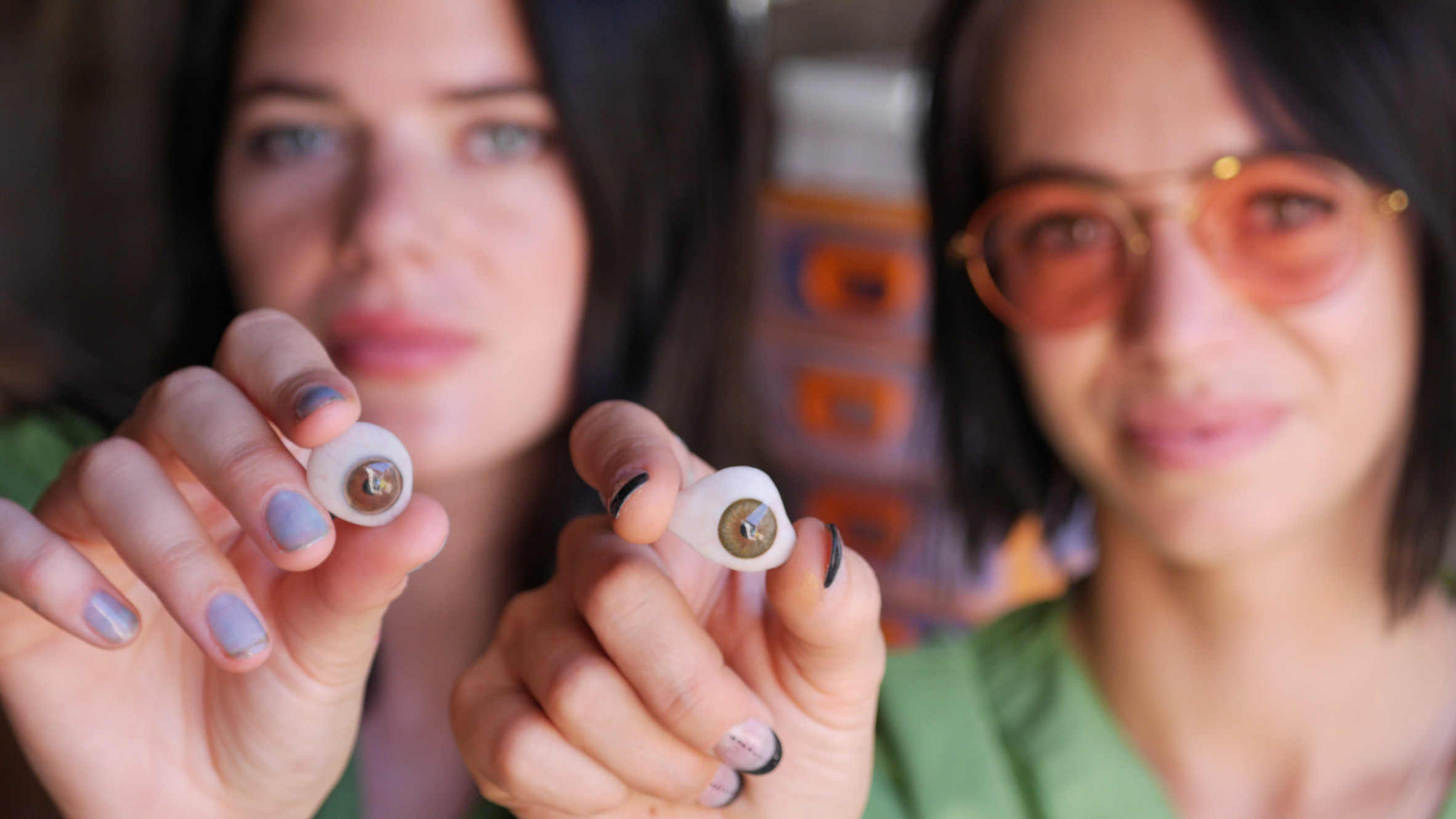Vision is a precious gift as it is a window to the world. Its deformity or loss can be a traumatic event for individuals and their families. It can result in loss of confidence, ostracization, shame and stigma. A restorative prosthetic eye is a solution to this health challenge.
Eyes for All, an organization based in the Lavington area in Nairobi Kenya, makes restorative prosthetic eyes to help rehabilitate those who have lost an eye due to disease or trauma. The organisation is led by two ocular prosthetists, Nelly James and Francesca Gelai. The two met as dispensing opticians in an optometry practice in Australia, and have always been interested in all things eyes.
Free University: Online Sites That Will Give You Free Learning”

Nelly told UpeoHub Digital that customized prostheses are handmade using biocompatible polymethyl methacrylate (PMMA), a medical-grade acrylic material also used for dentures and artificial teeth.
“These prostheses are tailored to match the appearance of the patient’s other eye and fit their socket accurately, ensuring optimal movement, comfort, and socket health. This is done by fitting a template shape into the patient’s socket and adding or adjusting the material so that the template is comfortable and the eyelids are opening as evenly and symmetrically as possible,” Nelly, a prosthetic expert, said.
“The template is then used as a model and a completely new prosthesis is made for the patient. The prosthesis is hand-painted to the same colour and size as the other eye,” she added.
Musician Burnaboy Urges Africans In the Diaspora to Connect With their African Roots
There are two layers of painting and enhancements added, right down to the tiny veins on the white of the eyes so that the prosthesis is as natural and life-like as possible. This whole process is completely painless and takes 1-2 days.
An ocular prosthesis is a handmade artificial eye that replaces a surgically removed eye or is used to cover a malformed eye. Because every socket is unique and different, the prosthesis is custom-made to fit each patient. This is important not only for the patient’s comfort but to encourage symmetrical growth, eyelid support and bone development.
“The prosthesis is fit gently into the patient’s socket where it sits comfortably between the tissue and eyelids. Due to the high number of younger patients, a material that can be adjusted and adapted is used. As the patient grows bigger, the prosthesis is made bigger as well so that it aligns with the patient’s natural anatomy,” Nelly explained.
When an eye becomes diseased or damaged, it may be necessary to remove all or some of the contents of the eye. The surgery is done by an ophthalmologist or an oculoplastic surgeon. After the surgery, the socket needs to heal for 5-8 weeks before one can be fitted with a prosthesis. This is to prevent any swelling or discomfort in the socket after the surgery.
When the socket has healed, it is time for the prosthesis fitting appointment. This takes approximately one hour and is where some photos and measurements are taken to find the perfect fit for the socket (the template). The new prosthesis is then made based on one’s exact measurements which takes 1-2 days. At the second appointment, the prosthesis is fit and its comfort, fit and appearance are checked. This takes approximately 30 minutes.
Nelly indicated that a restorative ocular prosthesis is an important part of the rehabilitation of the patient as it provides both psychological and physiological benefits. Psychological benefits include the restoration of confidence in the wearer and in some cases reintegration into their community and society. By receiving a prosthesis, a patient can feel whole again. Physiological benefits include protection for the underlying tissue from further trauma or foreign bodies such as dust, dirt, wind or water.
“A prosthetic eye also helps maintain the natural structure and development of the bones of the face as a person grows. Without an eye, the bones of the face may not develop symmetrically and the muscles of the face may become relaxed and stop working,” the prosthetic expert noted.
How Visionary Business Builders Get it Wrong – Subomi Plumptre
“A prosthesis encourages the bones to develop naturally and the muscles to maintain their strength and continue to work as intended. By restoring the face, the patient’s identity, hope and a chance for a better life are also restored,” Nelly added.
For as low as $300, one is able to get a fully customized artificial eye, which is also the lowest price in the world. The prosthesis itself should last approximately 5-10 years with proper maintenance.
Nelly and Francesca were drawn to this multifaceted vocation as it perfectly combines their love for eyes, craft and working with people. They completed their prosthetic training in the UK with world-renown and experienced ocularist John Pacey-Lowrie, in Nottingham and at Nottingham Trent University.
Since training with John, they have spent time working in Greece, Ghana, Nigeria, New Zealand and Australia with different ocularists and learning a wide range of skills from each of their colleagues. They have been based in Nairobi, Kenya since 2018. They have a modest clinic in Nairobi’s Lavington where they work alongside doctors and eye specialists who contribute to the total well-being of their patients.
Article by Lydia Achieng’
Email: lydiaachieng@upeohubdigital.co.ke
Follow or like our social media accounts for more informative stories:
Facebook: https://www.facebook.com/UpeoHubDigital
Twitter: https://twitter.com/upeohubnews
LinkedIn: https://linkedin.com/UpeoHubDigital
Instagram: https://www.instagram.com/upeohubdigital
Would you like us to feature your story/opinion? You can contact us through the following:
Cell: +254 759 896907
Email: news@upeohubdigital.co.ke
For corporate engagements and partnerships, you can reach out to us via info@upeohubdigital.co.ke
For marketing engagements, email us via marketing@upeohubdigital.co.ke